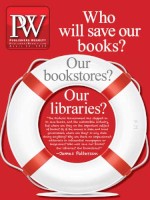Most readers who preordered Charlaine Harris’s forthcoming Sookie Stackhouse novel, Dead Ever After (which will be released May 7), likely did so at Amazon, where it is 45% off and has hovered in the top 50 for weeks. Although the book can also be preordered online through Barnes & Noble and Books-A-Million as well as at independents, especially those with Indie Commerce Web sites, over the past few years Amazon has become synonymous with advance orders. Indie booksellers talking up forthcoming books to their customers say that when they hear “I already ordered it,” that means “I’m getting it from Amazon.” Bricks-and-mortar stores may not have the staff or warehousing facilities to handle advance orders in bulk for bestselling authors like Dan Brown, Stephen King, or Janet Evanovich—or deep enough pockets to sell them as loss leaders—but some indie bookstores are finding that partnering with local authors and/or mining their events lists can bring in enough prepaid advance orders to make a difference to their bottom lines.
“We’re missing a significant chunk of the market,” said Dale Szczeblowski, co-owner of Porter Square Books in Cambridge, Mass., when asked about preorders. He learned just how significant that chunk is when Neil Gaiman offered Porter Square, his local independent, and BN.com the opportunity to presell signed first editions of his new novel, The Ocean at the End of the Lane, which releases June 18. Since February, Porter Square has presold 3,000 copies of the book at full price, and Szczeblowski expects that figure to rise to 5,000 or more by pub date. The success of the Gaiman title has made him consider a staff suggestion that he blog about forthcoming titles months in advance and link them to the store’s Web site (portersquarebooks.com). “It all comes down to time and priorities,” said Szczeblowski.
Christine Onorati, owner of Word in Brooklyn, N.Y., has created a preorder section for signed and personalized books on her store’s Web site (wordbrooklyn
.com). “We make pages for local authors like Kate Christensen or Jennifer Gilmore,” explained Onorati, who counts many writers as personal friends and is not afraid to ask them to sign. “It’s a great lesson for other booksellers to know who your friends are—and it’s a great revenue source. The Web site is a huge tool; we get many international orders.”
For Kelly Justice, owner of Fountain Bookstore in Richmond, Va., preselling is “another wonderful way for getting your bookstore out there. To me it’s not a presales game, it’s a hearts-and-minds game. It took us a long time to build up, and then one of our authors got famous.” That author, YA favorite Maggie Stiefvater, has helped boost sales, as have books like last fall’s Young House Love, by local authors Sherry and John Petersik. Justice estimated that presales of signed books add an extra five to ten books a day to her sales, with many orders coming from as far away as Australia, Brazil, Israel, and the U.K. She noted that when the author has a relationship with the store and signs copies for presales, “what we have is a unique book with added value.”
Events are the driver for preorders at Rainy Day Books in Fairway, Kans., which sold 1,255 copies of Caroline Kennedy’s Poems to Learn by Heart as part of an “admission package,” which the store creates for every author event. It includes the book, a ticket, and, depending on the venue, a guest ticket. Rainy Day is currently selling books and admission packages for events as far out as September. The store also makes use of limited numbers of autographed books that publishers, especially Random House and Penguin, make available to booksellers. “When {indies] presell these books,” said Rainy Day founder and president Vivien Jennings, “it gives them an immediate jump across the country. I think it’s brilliant, and I appreciate the support as a customer.”
Preselling is not without drawbacks, as Michael Tucker, president of Books Inc., which has 12 stores headquartered in San Francisco, has discovered. Although he finds in-store presales for upcoming events relatively easy to handle, sending out a thousand or more signed first editions for Rick Riordan or Christopher Moore in one day can be challenging. Even though anyone can preorder from an Indie Commerce site and bookstores that offer Kobo can presell e-books, Tucker points out that it can be cumbersome to find a specific title on some sites. Indies don’t have the same kind of powerful search engines as Amazon, whose technology allows customers to find particular books even when they can’t recall the exact titles or author names. Justice, too, adds a caveat: “Be careful of your freight policies. We do a shipping audit quarterly. Shipping could go up $1 a book or the price {of the book] could go up.” Still, it’s worth it. “How many minutes would you take in the store to sell a book?” she asked. “It takes me 45 seconds to post a link.”



 Volume 260
Issue 16
04/22/2013
Volume 260
Issue 16
04/22/2013





